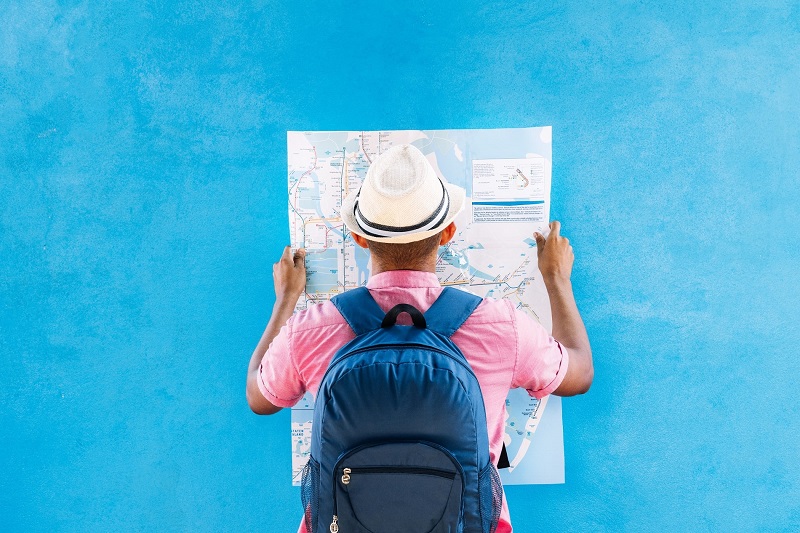Ever packed your bags, hopped on a plane, and found yourself in a completely different world? It’s exhilarating, isn’t it? But sometimes, the thrill of exploring new places can be dampened by the unexpected jolt of culture shock.
Culture shock isn’t just about struggling with a new language or getting used to local customs. It’s about feeling out of place and yearning for the familiar. But don’t fret! I’m here to share some tried-and-true tips to help you conquer culture shock and adapt seamlessly to your travel destinations.
Understanding Culture Shock
As we delve deeper into the realm of culture shock, it’s essential to grasp its true essence. Let’s twine a narrative around undeniable aspects of this peculiar yet commonplace phenomenon.
What Is Culture Shock?
Culture shock is a unique and powerful force. It’s a torrent of thoughts and emotions experienced when a person comes into contact with an unfamiliar culture. It’s tied to the feeling of being removed from what’s known and comfortable and plunged into a place where everyday norms, communication styles, values, and lifestyle habits are different.
In the realm of travel, culture shock often kickstarts as an exciting journey into the unknown. With wide-eyed wonder, you’re exploring new foods, landscapes, languages. But, in a snap, it takes a turn, tossing you into an emotional whirlwind, where the novelty wears thin and cultural differences turn confusing, if not intimidating.
- Tourist Phase: It’s common to start on a high – the Tourist Phase. Think of the first few days or weeks, where everything novel seems fascinating. Basking in the marvel of new vistas, cultures, cuisines – excitement is at its zenith.
- Negotiation Phase: Gradually, as the showy lustre dims, you now enter the Negotiation Phase. Sprouted from the stark realization of differences between the home culture and the new one, frustration seeps in. Misunderstandings, language barriers, and the struggle in adapting is real here.
- Adjustment Phase: Yet, humans are resilient beings. They adapt, and that’s exactly the hallmark of the Adjustment Phase. Navigating through the chaos, you start accepting these divergences, learning the language, understanding the norms – a rhythm settles in.
- Mastery Phase: Lastly, it’s the Mastery Phase. Having figured out the ropes of the culture, you now feel at ease and confident. Not just surviving but thriving – this phase signifies seamless adaptation to the new culture. A full circle drawn to the process of grappling with culture shock.
Preparing for Your Journey
Embarking on a journey to striking, unexplored territories might seem daunting. Let’s see how some forward-planning can help stave off culture shock and enhance your travel denouement.
Research Your Destination
It’s invariably crucial to grasp a solid understanding of the area you’re venturing to. By scouring online resources, travel books, and documentaries, you gain insight into local customs, traditions, and societal norms. For instance, reading about the tranquil, tea-drinking ceremonies in Japan can fortify your cultural appreciation, and prevent unwanted surprises upon arrival.
Learn Basic Local Customs and Language
Acquiring a smattering of the local language goes a long way in navigating an unfamiliar terrain. Basic phrases, like greetings or requests, instil confidence and show respect for the indigenous culture. Further, familiarize yourself with local customs. If you’re travelling to Thailand, for instance, you’d find it’s inappropriate to touch someone’s head as it’s considered sacred. Likewise, grasping these cultural nuances puts you on a faster track to seamless travel adaptation.
Practical Tips to Conquer Culture Shock
In addition to preparing for the journey and understanding the stages of culture shock, there are proactive measures one can embrace during their venture. Here are some of those strategies.
Establish a Routine Upon Arrival
Establishing a routine soon after landing can help counterbalance the upheaval of trying to adapt to a new culture. Consistency is key, so consider setting a routine for mundane tasks. For instance, select a morning regimen that includes a specific wake-up time, followed by exercising or meditation, and then having breakfast. Creating this pattern can bring a sense of normality, no matter the cultural context.
Stay Connected with Home
While travel calls for immersion in the foreign culture, maintaining ties with home proves crucial too. A little slice of familiarity, away from home, often acts as a buffer against culture shock. A simple Skype call with family or friends, reading a local newspaper online, or watching a favorite TV show can offer a comforting feel of nostalgia. A note of caution though, always balance the connection with home and assimilation into the new environment.
Engage Locally and Embrace Differences
Involving yourself in local traditions and community events is another marvelous approach to conquer culture shock. Join language exchanges, volunteer in community services, or participate in local festivals. These activities offer me insight into local life, promoting understanding and embrace of cultural differences. Undeniably, immersion fosters acceptance, facilitating a faster and smoother adjustment to the new culture.
Mental and Emotional Strategies
As I traverse through the labyrinth of culture shock, I’ll focus on two important factors: Managing expectations and utilizing stress-reducing techniques.
Manage Expectations
Entering a new environment, it’s crucial to remain open-minded, recognizing that reality may differ from preconceived notions. For example, despite extensive pre-trip research, there could be unexpected local traditions or routines. By maintaining flexibility, I’ll be more prepared for sudden changes and better equipped to handle cultural nuances.
Use Stress Reduction Techniques
When coping with culture shock, stress can become a concerning obstacle. I’ll combat these feelings by incorporating time-tested stress relievers, like regular exercise. Evidence shows that physical activities release endorphins, natural mood-lighteners that help soothe stress. Furthermore, practicing mindfulness by engaging in meditation or yoga can aid in creating a clear headspace, fostering calm amidst the chaos of adaptation. Regular communication with loved ones can also serve as a vital stress buffer, providing a piece of home in unfamiliar territory.
Stories of Successful Cultural Adaptation
Navigating through a new culture isn’t always smooth sailing. Fortunately, there are many who’ve sailed these waters before us and have come out stronger and more culturally adept. This section highlights those people and their stories.
Experiences from Seasoned Travelers
Seasoned travelers won’t shy away from sharing their experiences. Some have dealt with severe culture shock in the hub of Tokyo’s tech scene. Others, coming from bustling cities, found solace in the quiet villages nestled within Morocco’s Atlas Mountains. While the locations varied widely from the fervor of Shanghai’s street markets to the tranquility of Norway’s fjords, every person had one thing in common – their success in overcoming cultural differences and immersing themselves in the local landscape. Let’s delve into these transformative stories.
Firstly, consider Alex. He found himself overwhelmed by the bustling nightlife of Tokyo, much unlike his serene hometown in the United States. By giving himself time to adjust, frequenting local cafes, and using a language app to learn Japanese phrases commonly used among the locals, Alex illustrated that even the most jarring of cultural differences can be mitigated with the right approach.
Similarly, Sarah, a New Yorker used to the fast-paced city life, experienced profound tranquility nestled within Morocco’s Atlas Mountains. Instead of retreating back to her comfort zone, Sarah embraced the change. She spent her weekends with local families, learning their customs and traditions, thereby enriching her travel experience appreciably.
These stories reveal just one truth – cultural shocks, while challenging, can also be wellsprings of growth, transformation, and lifelong memories. It’s all about adapting to the tide and emerging as a stronger, more culturally aware version of yourself.
Conclusion
So there you have it folks! We’ve journeyed through the phases of culture shock and explored how to navigate these unfamiliar waters. We’ve delved into strategies to manage expectations and stress and learned how to be proactive in our adaptation process. We’ve heard inspiring stories from seasoned travelers who’ve embraced the challenge and grown through their experiences.
Remember, it’s all about approaching new cultures with an open mind and a willingness to learn. It’s not always easy, but it’s a journey worth taking. You’ll come out the other side more culturally aware and with a richer understanding of the world. So go ahead, pack your bags and get ready to conquer culture shock. Happy travels!










0 Comments